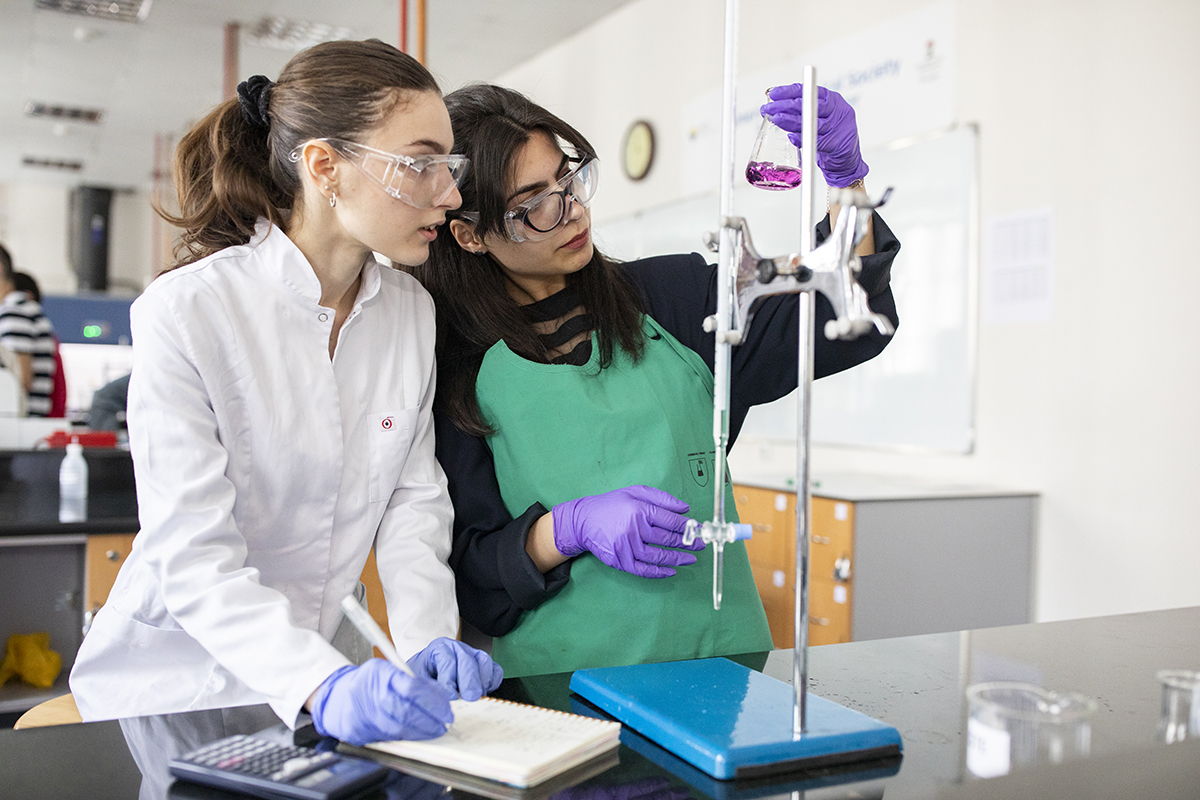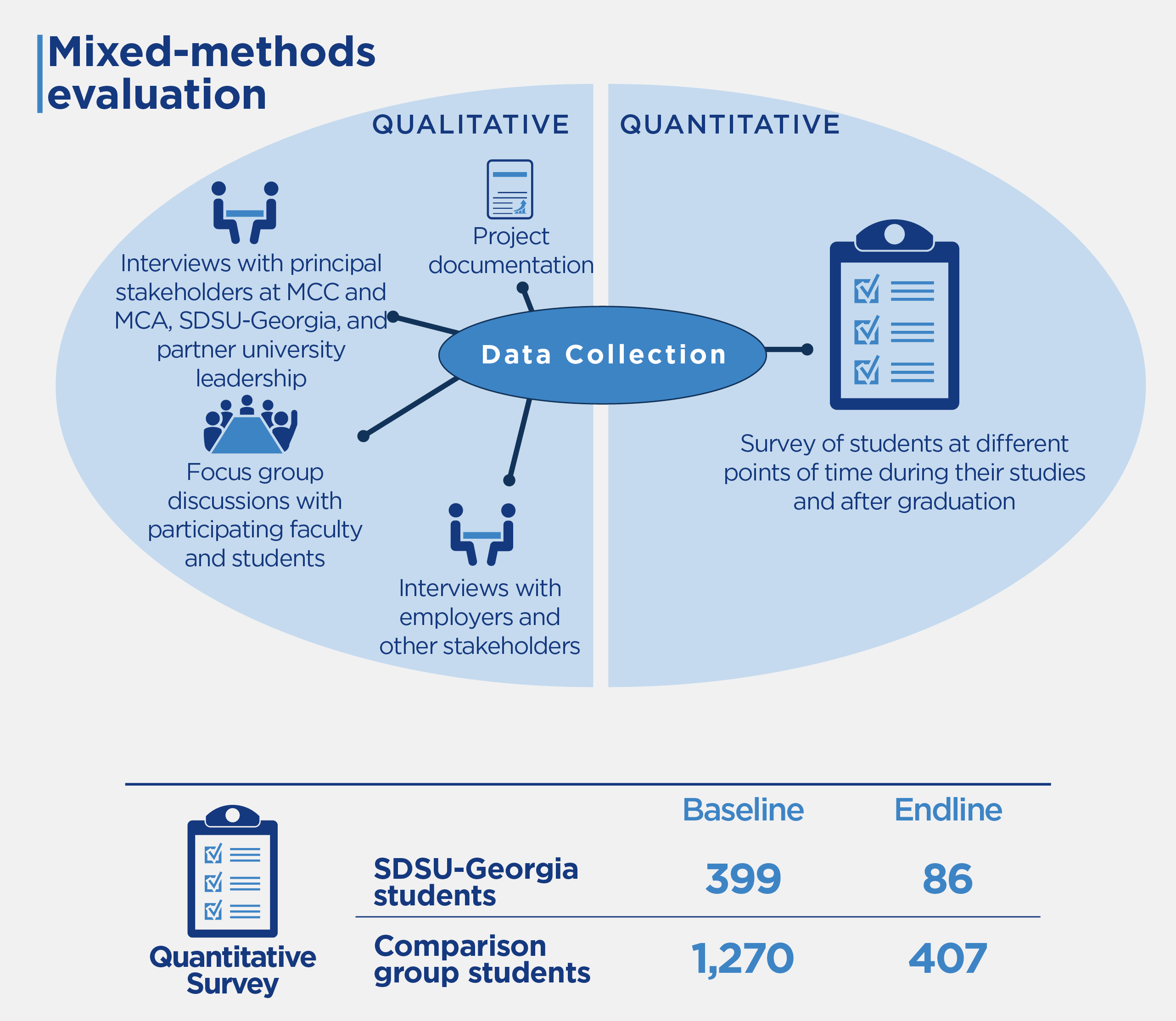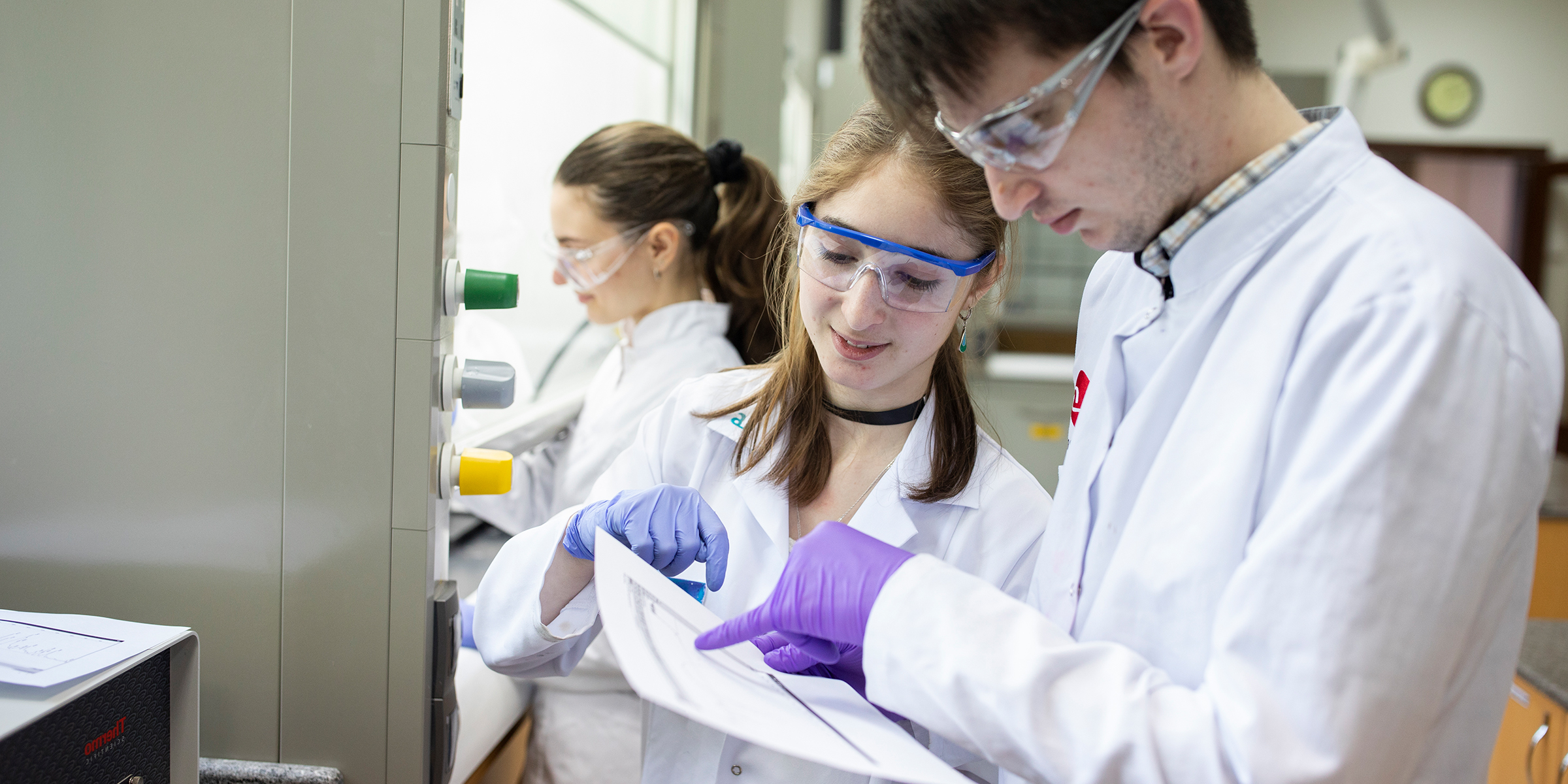Program Overview
MCC’s $139 million Georgia II Compact (2014–2019) funded the $36 million STEM Higher Education Project. The project, which aimed to enhance science, technology, engineering, and mathematics (STEM) education by partnering San Diego State University with three Georgian public universities (Tbilisi State, Ilia State, and Georgian Technical Universities). The goal was to provide Georgian students with opportunities for high-quality degrees that would lead to higher-paying jobs.After SDSU administered degree programs to 6 cohorts, partner universities sought international accreditation for their own programs.
Key Findings
Partner Capacity
- San Diego State University (SDSU) trained 120 Georgian faculty and administrators by engaging them in teaching SDSU courses.
- The project made it possible for partner universities to significantly upgrade classrooms and laboratories.
Student Demographics
- While the SDSU-Georgia cohorts enrolled 35 percent women, recent partner university cohorts in accredited programs have only half as many women.
Graduate Wages
- SDSU-Georgia graduates earned 70 to 120 percent more than comparable students.
Graduate Skills
- Employers appreciated graduates’ English language proficiency, technical skills, and workplace skills such as communication and problem solving.
Sustainability
- If challenges can be managed and accredited programs expanded, the project is positioned to make a major contribution to the country’s STEM human resource needs.
Evaluation Questions
This final impact evaluation builds upon an interim performance evaluation that focused on implementation, activities, and students’ views of the programs. This evaluation addresses:
- 1
What is the impact of the project on graduates’ outcomes pertaining to income and employer matching? - 2
Does the impact of the project differ between men and women? - 3
To what extent are the degree programs sustainable? - 4
What is the evaluation-based economic rate of return?
Detailed Findings
These findings build upon the interim evaluation report results published in 2021.
Partner Capacity

Jake Lyell for MCC
Students in SDSU-Georgia chemistry laboratory
The project built significant organizational and human capacity at Georgian partner universities. In addition to training Georgian faculty and administrators, SDSU also helped partner universities learn about how to achieve Accreditation Board for Engineering and Technology accreditation and American Chemical Society certification. The project funded significant upgrades to classroom and laboratory facilities at Tbilisi State University (TSU) and Ilia State University (ISU) (including an entire new STEM building at ISU), and more limited upgrades at Georgian Technical University (GTU). These are essential to qualifying for international accreditation and have proven attractive to potential students.
Student Demographics
Throughout the project, MCC and the Government of Georgia were concerned with expanding opportunities for women in STEM. Women made up 35 percent of project participants over all six SDSU-Georgia cohorts, which is considered a strong increase over prior female STEM enrollment rates. But women’s enrollment in the new partner accredited programs is only half the rate it was in the SDSU-Georgia cohorts, raising concerns that women’s progress under the project will not be continued. In surveys at both SDSU-Georgia and comparison universities, female students expressed concerns about their access to internship opportunities.
Graduate Wages

Graduates’ Average Monthly Wages (US Dollars)
NOTES: Authors’ calculations based on 53 SDSU-Georgia graduates and 259 comparison group graduates. These values are adjusted for differences between SDSU-Georgia and the comparison group. The range for SDSU-Georgia graduates are produced from different models. The range is statistically significant.
Project graduates are currently earning more than non-project graduates. Georgian students who graduated from one of the programs earned an estimated 70 to 120 percent more than comparable students. This is well above the planning estimate of 44 percent. However, the survey’s low response rate and potential dissimilarity of the comparison group’s experiences make for uncertainty around these estimates.
Graduate Skills
Employers generally appreciated the skills of project graduates. Employers indicated that they pay greater attention to applicants’ skills than the academic program from which they graduate. Employers noted that SDSU-Georgia graduates had strong English language proficiency, workplace essential skills (such as communication and problem solving), and technical skills.
Sustainability
The project is positioned for long-term sustainability if it can manage challenges. Five partner programs have earned accreditation and certification, with seven more proposed for later submission. If currently accredited programs maintain their status with more added in the future and student enrollments are increased, the programs involved in this project are positioned to make a major contribution to the country’s STEM human resource needs.
To achieve these benefits, Georgian universities, government, and other stakeholders must maintain and renew faculty skills and laboratory facilities, cultivate community and employer support for international accreditation, continue to attract and support women to these programs, and develop a sustainable finance model for accredited programs.
Economic Rate of Return
MCC considers a 10% economic rate of return (ERR) as the threshold to proceed with investment. MCC calculates the Original ERR and Compact Closeout ERR. RAND calculated the Evaluation-Based ERR.
- 10%
Original ERR - 7%
Compact Closeout ERR - 11% (range 5-16%)
Evaluation-Based ERR
Data from the evaluation indicate that project graduates are likely to earn more than the earlier assumptions, raising the ERR. Although student enrollments have been lower than earlier assumptions, if the partner universities can sustain and expand their accredited programs, a larger number of students will be enrolled, also raising the ERR. If the programs can maintain the quality of their teaching and facilities without significant increases from current costs, the ERR will also increase.
MCC Learning
Setting up a satellite campus of an American university abroad can be prohibitively expensive and unsustainable in many cases. Although the American degree has opened doors for some graduates, a more cost-effective investment would focus on short-term exchange visits to increase educator capacity while promoting international accreditation.
It is important to ensure that graduates develop transversal skills through education and training. Many employers cited the value of the skillsets that SDSU-Georgia graduates brought to the workplace, which may be more important than a particular degree name.
Evaluation Methods

The study team conducted a performance evaluation using a pre-post survey with a comparison along with qualitative research. They analyzed documents and interviewed project participants over the course of the six-year evaluation. The team also conducted a longitudinal survey of project students in the first four SDSU-Georgia cohorts, matched to a comparison group drawn from students at public and private universities in similar fields. A first survey was administered to both groups in 2019 and early 2020 to collect baseline information on their views toward their programs and perceived effectiveness, as well as demographic and current employment information. The final survey was administered in 2023 to measure post-graduation employment, earnings, and graduate school attendance, resulting in a 4 – 8 year exposure period for respondents, depending on their cohort.
2024-002-2998


